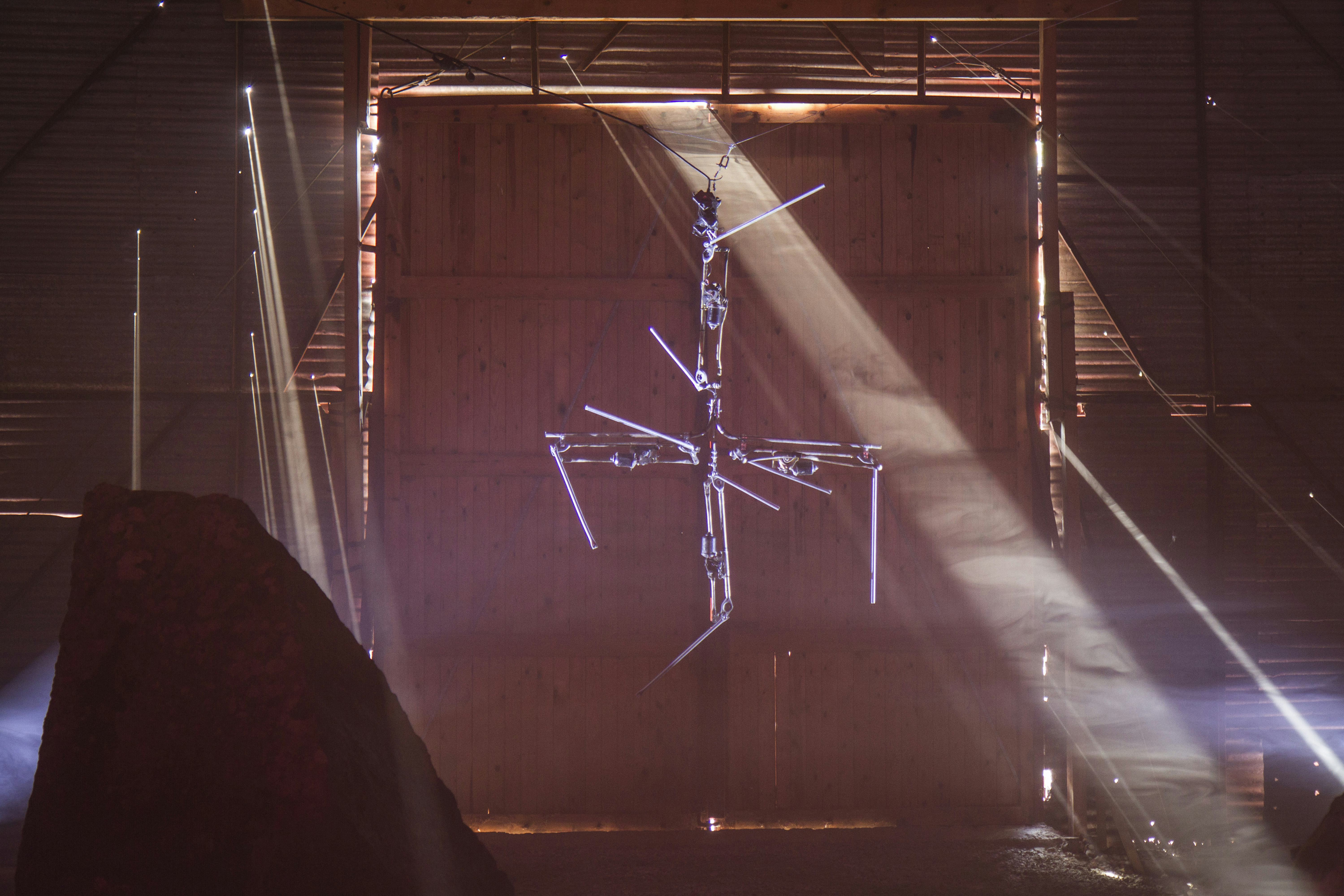LB°24 — Participants
ArchiveBeowulf: Dangerzone is a collaboration between Andreas R. Andersson and Karl Sjölund.
Andreas R. Andersson (b.1982, Västerås, Sweden) is based in Arvidsjaur in Norrbotten and works with large-scale and site-specific installations created from found materials. His work connects current contemporary issues to historical events and lived experience.
Karl Sjölund (b. 1986, Sunderbyn, Sweden) is an artist and theatre director. Although driven by an interest in formal experimentation, his work often focuses on site specific sound and sculpture installations dealing with the industrial and military expansion in the Swedish north and the entailing questions of colonial history, ecology and politics of the Swedish north. He currently works at Institutet in Vitsaniemi on the Torneå River and the Swedish-Finnish border. He shares the artistic leadership with Maja Lindström and Markus Öhrn. Apart from the production of their own works, Institutet runs a residency program and curates an annual performing arts festival.
Beowulf: Dangerzone, 2023
Sound, light, stone and kinetic sculpture, 50 min.
Beowulf: Dangerzone is a site-specific theatrical installation developed by Andreas R. Andersson in collaboration with Karl Sjölund. Featuring sculptures and boulders, it reimagines the epic poem Beowulf, drawing parallels to the presence of the British iron ore mining company Beowulf Mining in Norrbotten and its extractive efforts in Jokkmokk. For the Luleåbiennalen 2024, the work is presented in two events inside Boden’s historic military Balloon Hall.
Beowulf, an epic poem from Old English literature, composed between the 8th and 11th centuries, narrates the story of a heroic Geatish warrior who confronts supernatural adversaries to protect his people and their lands. The narrative explores themes of heroism, loyalty, bravery, and the struggle between good and evil, offering insights into the culture, values, and societal structure of the Anglo-Saxon world, and into the power dynamics within a hierarchical society.
In this contemporary reinterpretation, the focus shifts from a heroic narrative to the life and controversies of the anti-hero Sven Otto Littorin, a Swedish businessman and politician associated with Beowulf Mining. The company has since the early 2010s been focused on the prospect of mining iron ore in Gállok in Jokkmokk Municipality. They have been facing opposition from environmental groups, the Sámi people, and other affected communities, due to the environmental disruption their enterprises cause, and the fact that the mining site sits on ancestral lands of the Sámi and is integral to the reindeer winter grazing lands. Just as the original hero Beowulf confronts monstrous adversaries to protect kingdoms, the presence of Beowulf Mining in Norrbotten brings forth modern-day challenges and debates regarding land use, environmental impact, and socio-economic development.
Beowulf: Dangerzone’s contemporary narrative is performed through an audio-visual conversation between a series of sculptures and boulders, both man-made technological devices and mineral other-than-human bodies. Their narratives further connect to the complexities and ethical challenges within mining endeavours by integrating references from the writings of Georgius Agricola, known as the "father of mineralogy". Agricola's exploration of mining techniques, metallurgy, and geology during the Renaissance period offers historical context and parallels to the modern-day mining industry.
This theatrical installation happens within the Balloon Hall in Boden, a testament to Sweden's strategic defence network of buildings aimed to protect Sweden’s northern territories. Built in 1914, the hall housed a hydrogen-filled balloon used for communication during times of geopolitical tension. In a time of a global dissemination of wars and the perpetuation of several modes of violence, the insertion of this contemporary epic narrative within this setting adds an important layer to the work.
Andreas R Andersson has graduated at HDK-Valand, Konstfack and the Royal Academy of Arts, and has been shown in solo and group exhibitions at, among others, W139 in Amsterdam, NL, Nordica Studios in Kunming, CN and Periscope in Salzburg, AT. He has been awarded several scholarships and completed residencies in China, South Africa and the USA, among others.
Karl Sjölund studied philosophy at Södertörn University and theatre directing at the Stockholm Academy of Dramatic Arts. Previous works include I rikets tjänst (2022) in Armasjärvi, Övertorneå, SE, Stumt tvång (2022) at SKH, Stockholm, SE and Hellerau, Dresden, GE, and The Sound of War (2018), was part of the Luleå Biennial 2018: Tidal Ground at Rödbergsfortet in Boden, SE.
Work’s credits and support:
Beowulf: Dangerzone is presented in the Luleåbiennalen 2024 with the support of Institutet.
The song and harp interpretation of the Beowulf epic was conceived and performed by Benjamin Bagby. The original performance was recorded in 2006 and has been included in the work with kind permission from Benjamin Bagby.
With thanks to Tony Heiskanen, wheel loader, and Maja Lindström, light design.
